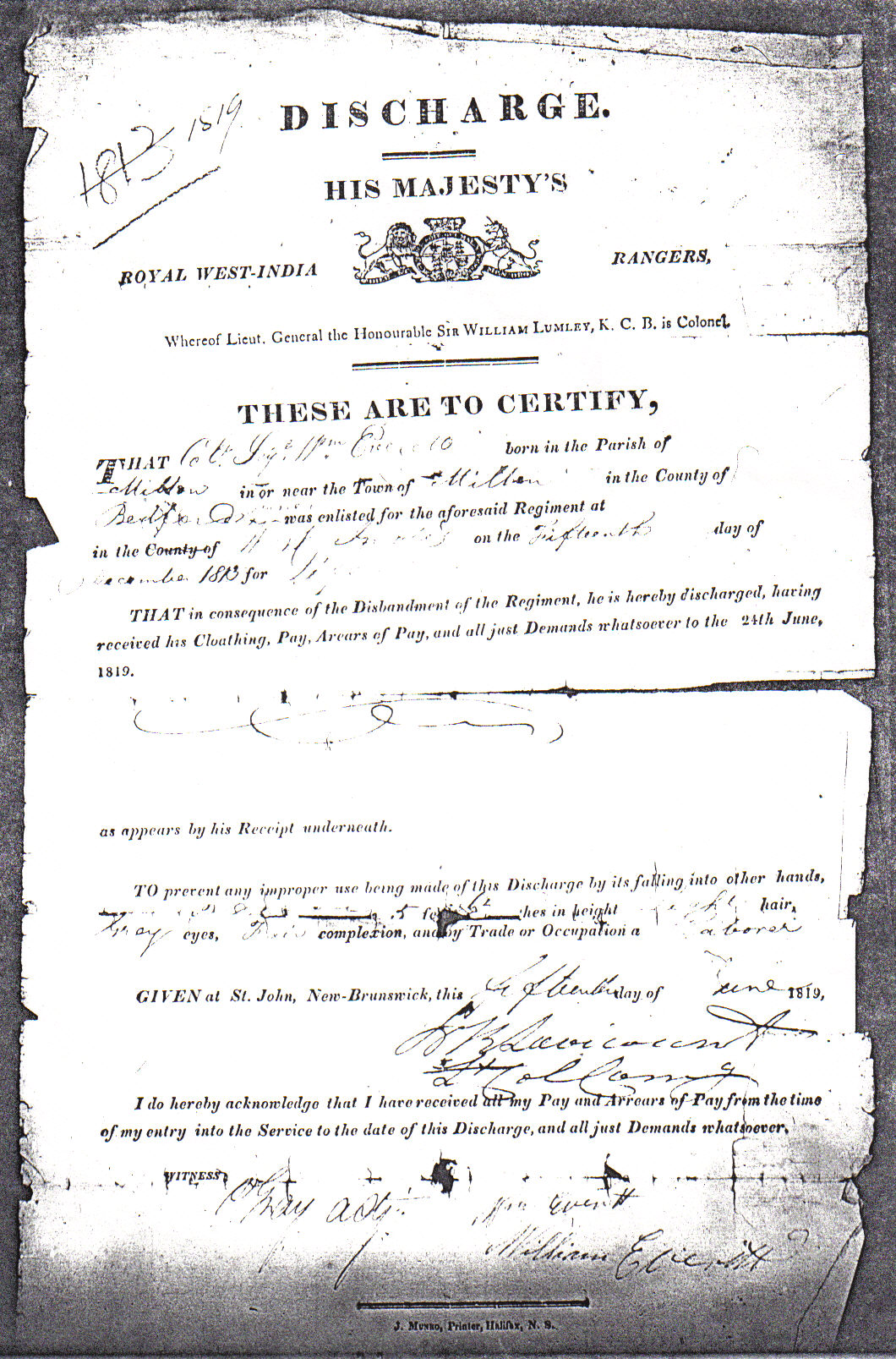
The “Defalcation of Paymaster Graham”
”There is a claim due me” states William Knott of Devon in a 6 May 1818 Discharge certificate issued at Antigua,”of one pounds three shillings nine pence half penny from the Defalcation of Paymaster R.C. Graham.” “Defalcation” is a somewhat old-fashioned way of saying Paymaster Graham was pocketing money he should have been paying the soldiers as wages. We don't know how long he had been doing this. He had been the regimental paymaster since 5 August 1813, or almost five years before William Knott wrote out his complaint. |
 |
When soldiers were discharged from the Army they were provided with the discharge certificate to sign, which usually included the phrase “I do hereby acknowledge that I have received all my Pay and Arrears of Pay … and all just Demands whatsoever….” |
Paymaster Graham's December 1818 courtmartial proceedings at the Island of Antigua are described at Charles James, A Collection of the Charges, Opinions and Sentences of General Courts Martial (1820), pp. 815 - 817, accessed 8 October 2012 at Google Books
Were any of the unpaid wages ever restored to the soldiers? We may never know. We don't know if any of the 62 Rangers who settled in the upper St. John River valley were defrauded by Paymaster Graham. Colour Sergeant William Everitt’s discharge certificate (shown here) makes no mention of it. None of the other 61 soldier-settlers from the regiment had a discharge certificate preserved in the RWIR "Soldier's Documents" in LDS microfilm 861,851.
|